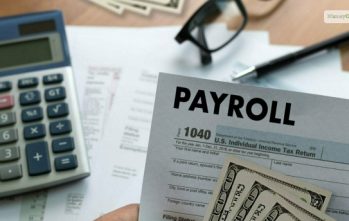Table Of Contents
- 1. Organize Your Documents Early
- 2. Understand the Difference Between Avoidance and Evasion
- 3. Utilize Tax Software or a Professional
- 4. Know Your Credits and Deductions
- 5. Contribution towards Retirement Accounts
- 6. Review Last Year's Return
- 7. Prepare for Possible Audits
- 8. Plan for the Next Tax Year
- Conclusion
- 1. Organize Your Documents Early
- 2. Understand the Difference Between Avoidance and Evasion
- 3. Utilize Tax Software or a Professional
- 4. Know Your Credits and Deductions
- 5. Contribution towards Retirement Accounts
- 6. Review Last Year's Return
- 7. Prepare for Possible Audits
- 8. Plan for the Next Tax Year
- Conclusion
8 Tips To Prepare For A Smooth Tax Season
Tax season rolls around every year, bringing a mix of dread and the promise of potential refunds for millions of people. Whether you’re an individual taxpayer or running a business, the key to navigating this period smoothly lies in preparation and strategy. Instead of seeing tax season as a scary annual hurdle, view it as an opportunity to assess your financial health and make savvy decisions.
With the right approach, you can minimize stress, avoid common pitfalls, and perhaps even improve your financial situation. In this article, we delve into some crucial tips that pave the way for a less taxing, more rewarding tax season.
1. Organize Your Documents Early
The foundation of a hassle-free tax season is organization. Scrambling to find receipts and forms at the last minute adds stress and increases the risk of errors on your return. Start by collecting all important documents well in advance. This list includes but isn’t limited to, W-2s,, investment income statements, 1099s, and receipts for deductible expenses.
Consider using a digital filing system or a dedicated physical folder to keep everything in one place throughout the year. This proactive approach simplifies your tax preparation and helps identify potential credits and deductions early on.
2. Understand the Difference Between Avoidance and Evasion
When it comes to taxes, there’s a fine line between minimizing your liability and stepping into illegal territory. Tax avoidance is perfectly legal and involves strategies like maximizing deductions and contributions to retirement accounts to lower taxable income. However, crossing into tax evasion is not only illegal but also a felony with severe consequences.
For those wondering, is tax evasion a felony? The answer is yes. It involves deliberate actions to conceal income, falsely report expenses, or not file tax returns at all, aiming to reduce tax liability through deceit. The distinction between avoidance and evasion is critical; while the former saves you money legally, the latter risks hefty fines, imprisonment, and a tarnished financial reputation.
3. Utilize Tax Software or a Professional
For many, tax software provides a straightforward and cost-effective means of preparing and filing returns. These programs guide you through the filing process, help identify potential deductions, and calculate your tax liability. They’re especially useful for individuals with straightforward financial situations. However, if you have a more complex financial landscape ? such as owning a business, freelancing, or dealing with investment income ? consider hiring a professional.
A certified tax preparer or accountant can offer personalized advice, find additional savings, and greatly minimize the likelihood of mistakes.
4. Know Your Credits and Deductions
Understanding which deductions and credits you can claim is essential for making the most of your tax return. Deductions decrease the amount of your income that’s subject to taxes, while credits directly diminish the amount of tax you owe, offering dollar-for-dollar reductions. General deductions include contributions to charity, interest on home mortgages, and specific expenses related to running a business for self-employed people. Credits might include the Earned Income Tax Credit (EITC), education credits, or credits for energy-efficient home improvements.
Each tax year can bring changes to these deductions and credits, so it’s important to stay informed or consult with a tax professional to ensure you’re not missing out on valuable savings.
5. Contribution towards Retirement Accounts
All kinds of retirement account contributions are one of the most effective ways to reduce your tax bill. Contributions to traditional IRAs or employer-sponsored 401(k) plans can lower your annual taxable income, leading to immediate tax savings.
Not only do these contributions reduce your taxable income, but they also bolster your retirement savings, serving your long-term financial health. Remember, the deadline for IRA contributions is typically the tax filing deadline (April 15 of the following year), but 401(k) contributions must be made by the end of the calendar year.
6. Review Last Year’s Return
Taking time to review last year’s tax return can provide valuable insights into your financial changes and help you plan for the current year. Look for any deductions or credits you missed and understand how changes in your income or life circumstances (like marriage, buying a home, or having a child) might impact your tax situation.
This review can help you adjust your withholdings or make estimated tax payments if necessary, avoiding surprises when tax season rolls around. Moreover, understanding the mistakes or successes of the past year ensures you’re better prepared to handle your taxes in the present.
7. Prepare for Possible Audits
While the chance of being audited is relatively low, preparation is key to handling the process smoothly should it occur. Maintain organized records of all deductions and credits claimed, including receipts, bank statements, and employment records, for at least three years from the date you file your return. If selected for an audit, this documentation will be crucial in supporting your tax return’s claims.
Understanding the rationale behind each deduction or credit you claim can also alleviate stress during an audit, as you’ll feel confident in the legitimacy of your tax filings.
8. Plan for the Next Tax Year
Proactive planning can make next year’s tax season even smoother. After filing this year’s taxes, take a moment to assess any potential changes in your financial situation that could affect next year’s tax liability. For the self-employed, look into making quarterly estimated tax payments to avoid a large tax bill and potential penalties at year’s end.
Additionally, start thinking about tax-saving strategies for the coming year, such as increasing retirement contributions, donating to charity, or investing in tax-efficient funds.
Conclusion
Tax season doesn’t have to be a source of stress. With careful preparation and strategic planning, you can navigate it smoothly and even find opportunities to improve your financial situation. By organizing your documents early, understanding the legalities of tax avoidance versus evasion, utilizing the best resources for your situation, and staying informed on credits and deductions, you’re well on your way to a successful tax season.
Remember, contributing to retirement accounts and reviewing last year’s return are proactive steps toward minimizing your tax liability. Preparing for audits and planning for the next tax year ensures you’re always ahead of the game. Embrace these strategies to transform tax season from a dreaded chore into an opportunity for financial optimization.
Read Also:














Margarette Oberbrunner
5th April, 2024
Fantastic read! I was especially impressed by the depth provided on the topic, offering a perspective I hadn't considered. Your insight adds significant value to the conversation. For future articles, it would be fascinating to explore more to dive deeper into this subject. Could you also clarify more about the topic? It caught my interest, and I'd love to understand more about it. Keep up the excellent work!